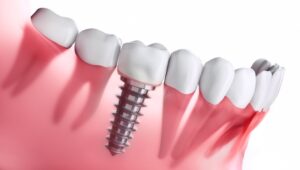Going to the dentist can be a daunting experience for many, whether you’re a child stepping into a dental clinic for the first time or a young adult transitioning to a different phase of dental care. Understanding how family dentists manage these evolving needs is crucial for optimal oral health.
The Journey Begins: Pediatric Dental Care
For little ones, the journey of maintaining oral health begins with pediatric dental care. Family dentists often focus on creating a welcoming and comforting environment for children during their initial visits. It’s more about building trust and establishing a routine than just checking for cavities.
Creating a Friendly Environment
Children are naturally curious, and dental work can seem intimidating. Family dentists address this by designing their clinics to be child-friendly, with bright colors, toys, and engaging activities. This way, children feel more at ease, making the dental chair seem less scary.
Early Education and Preventive Care
The focus is mainly on teaching the basics of oral hygiene to young children. Family dentists often educate parents and children on effective brushing techniques, the role of fluoride, and the importance of a balanced diet in maintaining healthy teeth.
From Baby Teeth to Permanent Teeth
The transition from baby teeth to permanent teeth is a significant milestone. This stage, commonly referred to as the mixed dentition phase, requires close monitoring to ensure that permanent teeth emerge correctly and healthy.
Monitoring Development
Family dentists monitor a child’s dental development closely. Regular check-ups allow them to track the alignment of new teeth and address potential issues such as overbites, underbites, or misaligned teeth.
Oral Health Encouragement
Encouraging good oral health habits becomes more important as permanent teeth come in. It’s during this phase that children begin to grasp the long-term impact of poor dental hygiene. Family dentists play a key role in reiterating these habits through engaging discussions and visual demonstrations.
The Transition: Adolescence to Adulthood
This phase demands a more tailored approach as individuals transition from teens to adults. As they gain independence, their oral health responsibility increases, and family dentists offer guidance to help them manage it effectively.
Addressing Common Cosmetic Concerns
Dentists become confidants, helping young adults navigate concerns like teeth whitening, braces, or correcting other cosmetic imperfections. This age group often desires that perfect smile, and family dentists assist in achieving these goals safely and effectively.
Teaching Responsibility
Adolescence is a time when adolescents are taught the responsibility of managing their own oral care routines. Dentists encourage regular brushing and flossing and educate them on how lifestyle choices, such as diet and smoking, impact dental health.
The Role of Technology in Dental Transitions
Technology continues to reshape various aspects of healthcare, and dentistry is no exception. The integration of advanced technologies in dentistry has revolutionized the way family dentists manage transitions from pediatric care to adult care.
Crowns, Bridges, and More
Modern tools and techniques make it easier to address issues like misalignments or gaps with minimal discomfort. Procedures that once required extensive dental work are now less invasive, thanks to these advancements.
Digital Imaging
Utilizing digital imaging, family dentists can provide more precise diagnoses and treatment plans. It allows for a more accurate assessment of the dental structure, facilitating a seamless transition from managing baby teeth to catering to adult dentition needs.
Psychological Aspects of Dental Transitions
The psychological comfort of patients as they transition plays a significant role in successful dental care. Family dentists often find themselves counseling patients just as frequently as they provide treatments.
Building Trust
Establishing trust with patients, especially younger ones and teenagers, is crucial. As they grow, their fears and apprehensions may change. A trusted family dentist can smoothen these transitions by being relatable and approachable.
Encouraging Open Communication
Open communication between patients and dentists promotes a better understanding of dental needs. It helps in tailoring care to suit evolving requirements, ensuring patients feel heard and valued.
Holistic Approaches to Dental Care
Family dentists are expanding their scope to include holistic approaches, understanding that oral health is not isolated but interconnected with overall well-being.
A holistic approach means advising on diet and lifestyle and educating patients on how these affect oral and systemic health. It’s an ongoing dialogue that extends into adulthood, and dentists are equipped to provide tailored advice throughout various life stages.
The Integration of Sedation Dentistry
As individuals transition to adult dental care, the introduction of sedation dentistry is sometimes necessary to address high anxiety or complex procedures.
Family dentists might discuss conscious sedation dentistry in Albuquerque or similar alternatives based on the patient’s needs. This method can help alleviate anxiety, especially for procedures like wisdom teeth removal or other surgical interventions.
Sedation as a Tool
While sedation is not always required, it can be a valuable tool for individuals who are particularly anxious or have a low pain threshold, ensuring their comfort and encouraging them to continue regular dental visits.
Continuing Education for Family Dentists
Family dentists are committed to lifelong learning to provide the best care for their patients. This means staying updated with the latest in dental technology, treatments, and best practices.
Keeping Up with Advancements
-
Participating in workshops and seminars
-
Engaging with professional dental associations
-
Regularly updating clinic techniques and technologies
This dedication ensures they are well-equipped to handle the nuanced transitions in dental care needs for all age groups.
Finding Your Ideal Family Dentist
Many people seek out a family dentist because they provide a continuum of care throughout life, making them the ideal solution for transitioning dental needs from childhood to adulthood. When seeking a family dentist, emphasize their experience with diverse age groups. Look for a practice with a strong reputation and a commitment to family-centered care.
Some might even consider visiting a dental firm in Albuquerque as an example. Such practices often highlight their experience catering to a wide demographic, making them suitable for seamlessly managing transitions from childhood to adult dental care.
Specialized Pediatric Dentistry
Pediatric dentistry is a specialized branch designed to focus on the oral health needs of children from infancy through adolescence.
Creating positive habits early is crucial. A children’s dentist in Albuquerque, for instance, might emphasize the importance of routine dental visits and engage kids in understanding why oral health is a lifetime commitment. By making these visits educational and fun, children grow into adults who prioritize their dental health.
Final Thoughts
Our dental needs evolve throughout life, and having a trusted family dentist makes navigating these changes smoother. Whether through pediatric care, adolescent changes, or adult dentistry, family dentists play an essential role in maintaining lifelong oral health. By choosing the right care, you ensure a healthy, confident smile that lasts a lifetime.




